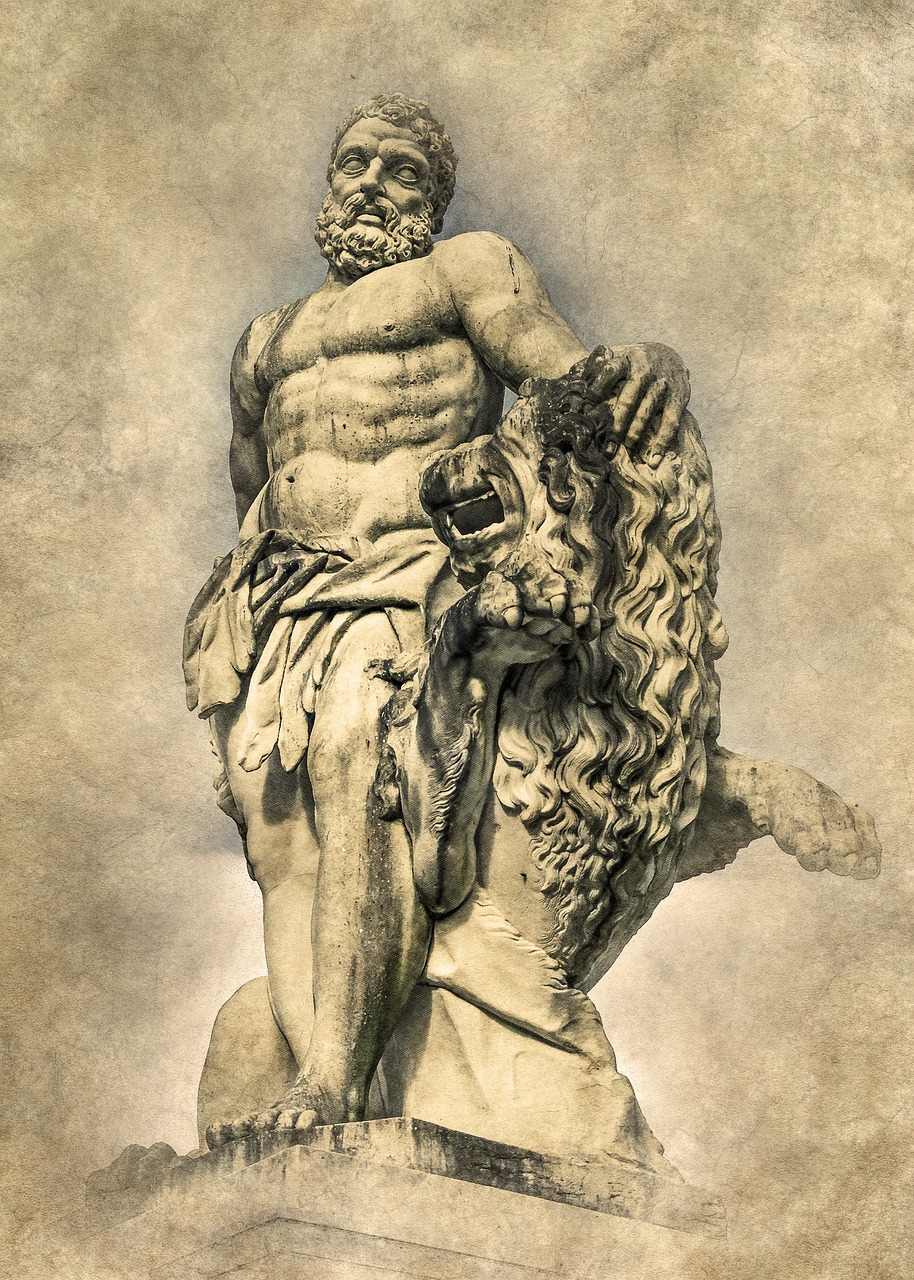Hercules: The Myth of the Struggling Hero
Hercules, a notable figure in mythology, was not a god but a mortal born to a complex lineage. His father, Zeus, held dominion over the Greek pantheon, while his mother, Alcmene, was the granddaughter of Perseus, the famed slayer of Medusa, another of Zeus’s offspring. The constellation named Hercules can be found amidst the stars, which ranks as the fifth-largest constellation in the night sky.
From infancy, Hercules faced adversities, including an assassination attempt orchestrated by Hera, who dispatched two serpents to eliminate him in his crib. Demonstrating extraordinary strength, he managed to strangle the snakes and escape. However, Hera’s antagonism did not cease there. As a young man, she cast an enchantment that drove him into a fit of madness, resulting in him unintentionally killing his wife and children. Overwhelmed by guilt, Hercules sought out Apollo, the god associated with truth and healing, to plead for a means of penance.
Recognizing that Hercules was a victim of Hera’s malice, Apollo instructed him to perform twelve arduous tasks for King Eurystheus of Mycenae. Completion of these labors would free him from his guilt and secure his ascension to immortality.
The Twelve Labors of Hercules
- The Nemean Lion
Hercules’ first task involved confronting a lion that plagued Nemea. Legends suggest Zeus may have fathered this beast. After trapping it in its cave, Hercules overpowered and strangled it, subsequently wearing its skin as a cloak. - The Lernaean Hydra
Next, he faced the Hydra, a formidable, multi-headed serpent dwelling in Lerna. With the help of his nephew Iolaus, Hercules severed the creature’s heads and Iolaus cauterized the wounds to prevent regrowth. - The Golden Hind
Hercules was tasked with capturing a sacred red deer belonging to Diana. Though Eurystheus anticipated failure due to Diana’s wrath, she permitted Hercules to proceed unharmed after he explained the situation. -
The Erymanthean Boar
His fourth labor was capturing a monstrous boar from Mount Erymanthus, which Hercules skillfully ensnared using a massive net. -
The Augean Stables
The fifth labor aimed to humiliate Hercules by requiring him to clean King Augeas’ vast stables in a single day. By diverting two rivers, he accomplished the task with ease. -
The Stymphlaian Birds
In his sixth challenge, Hercules was to rid Stymphalos of a flock of dangerous birds. With the assistance of Athena and magical bronze clappers crafted by Hephaistos, he successfully scared them away. -
The Cretan Bull
Hercules next ventured to Crete to capture a bull that had caused chaos on the island. He subdued it and brought it back to Eurystheus, who released it into Marathon. -
The Horses of Diomedes
His eighth labor involved capturing the man-eating horses belonging to King Diomedes, accomplishing this task and presenting the creatures to Eurystheus, who dedicated them to Hera. -
Hippolyte’s Belt
For his ninth challenge, Hercules aimed to obtain Hippolyte’s enchanted belt. Initially welcomed, trouble ensued when Hera, disguised as an Amazon, incited the queen’s fight-or-flight response, leading to a tragic confrontation. -
The Cattle of Geryon
Hercules’ tenth task took him to nearly Africa, where he was to steal cattle from Geryon, a unique monster with three heads and six legs. Despite Hera’s attempts to thwart him, he successfully returned with the cattle. -
The Apples of Hesperides
For his eleventh labor, Hercules sought golden apples guarded by nymphs, which required the aid of Prometheus and Atlas. He accomplished this and returned the apples post-inspection by Eurystheus. -
Cerberus
The final task led Hercules to Hades to capture Cerberus, the dreaded three-headed guardian of the Underworld. Through sheer strength, he managed to bring Cerberus back temporarily.
The Downfall of Hercules
Following the completion of his twelve labors, Hercules undertook various adventures, including ones where he saved the princess of Troy, but none rivaled the significance of the labors. Later in life, after marrying Deianira, he faced unforeseen tragedy when a centaur attempted to abduct her. In retaliation, he fatally shot the centaur with a poisoned arrow. In a malicious twist of fate, the dying centaur deceived Deianira, giving her a poisoned tunic that he claimed would bind Hercules to her.
Upon hearing rumors of Hercules’ infidelity, Deianira presented him with the tunic, leading to excruciating suffering as the poison burned through his flesh. Realizing he was doomed, Hercules constructed his own funeral pyre and met his end in flames. After his demise, Athena took him to Olympus, where he is said to achieve eternal life among the gods.



